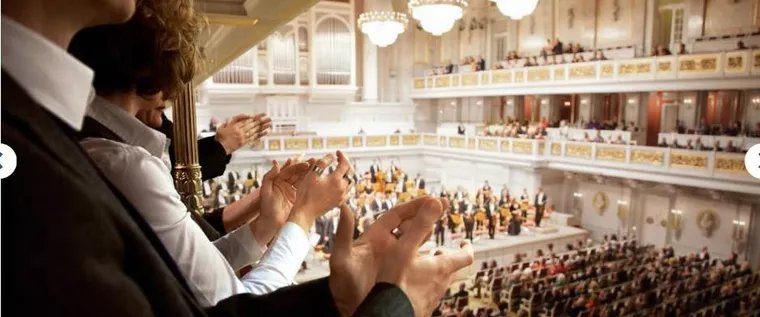
Works by Eisler, Weill, and Schoenberg
During the Weimar Republic, art, entertainment, and political engagement rarely went hand in hand as closely as they did then.
With songs by Hanns Eisler and Kurt Weill, composer, conductor, and chansonnier HK Gruber—a connoisseur of this period—and pianist Kirill Gerstein offer a musical look at this era of profound social change.
The second part of the evening features Arnold Schoenberg's Ode to Napoleon — a work from his American exile (1942/43), based on a sharp-tongued poem by Lord Byron and intended as a musical statement against tyranny.
PROGRAM
- Kurt Weill - Berlin in Light
- Hanns Eisler - Ballad of the Cripple Guard, Op. 18 No. 1
- Hanns Eisler - Return to Nature
- Kurt Weill - Bilbao Song (from Happy End)
- Kurt Weill - At Potsdam Under the Oaks (from The Berlin Requiem)
- Hanns Eisler - Newspaper Clippings, Op. 11
- Kurt Weill - Song of Mandeley (from Happy End)
- Hanns Eisler - Ballad of the Sack Throwers, Op. 22 No. 4
- Kurt Weill - Song of the Inadequacy of Human Striving (from The Threepenny Opera)
- Hanns Eisler - Superstition Couplet (from the incidental music to Johann Nestroy's Fear of Hell)
- Hanns Eisler - That's a Political Master (from the incidental music to Johann Nestroy's Eulenspiegel)
- Kurt Schwertsik - The Eagle Owl Looks So Clear au (from Seven Viennese Songs, Op. 20)
- Kurt Weill - Song of the Rhineland
- Arnold Schoenberg - Ode to Napoleon Buonaparte for Narrator, Piano, and String Quartet, Op. 41
- Hanns Eisler - Roses Scattered on the Path
Additional information
Participating artists
Kirill Gerstein
HK Gruber
Studierende der Barenboim-Said Akademie
Dates
September 2025
| Mo | Tu | We | Th | Fr | Sa | Su |
|---|---|---|---|---|---|---|
1
|
2
|
3
|
4
|
5
|
6
|
7
|
8
|
9
|
10
|
11
|
12
|
13
|
14
|
15
|
16
|
17
|
18
|
19
|
20
|
21
|
22
|
23
|
24
|
25
|
26
|
27
|
28
|
29
|
30
|



